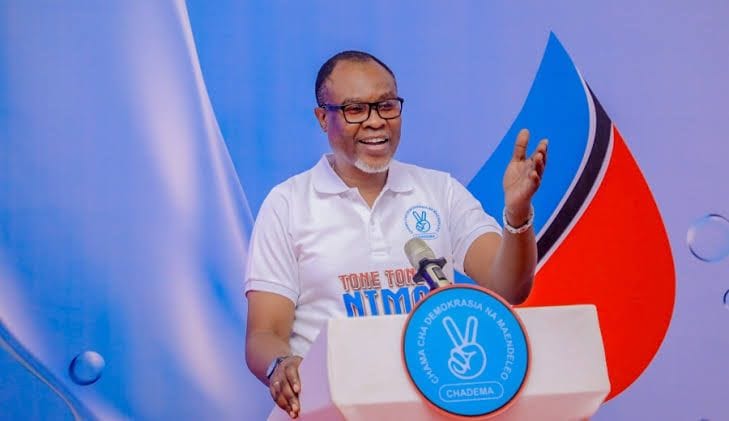Tanzanian authorities have arrested Amani Golugwa, Deputy Secretary General of the opposition CHADEMA party, in a move that has sparked concerns about a growing crackdown on political dissent ahead of the country’s October 2025 general elections.
Golugwa was taken into custody early Tuesday at Julius Nyerere International Airport in Dar es Salaam as he prepared to board a flight to Brussels, Belgium, where he was scheduled to attend a political forum organized by the International Democracy Union (IDU).
According to a statement by the Dar es Salaam Special Zone Police, Golugwa was arrested over alleged violations of immigration regulations, specifically “exiting and re-entering the country without following legal procedures.” The police noted that ongoing investigations are being carried out in coordination with other national security agencies.
The arrest has drawn swift criticism from CHADEMA and international observers. The IDU, of which CHADEMA is a member, denounced the arrest as unlawful and politically motivated. “Silencing opposition voices violates the core of democracy. We call for his immediate release,” the IDU posted on social media.
The development follows the recent arrest of CHADEMA leader Tundu Lissu, who faces treason charges stemming from a speech in which he allegedly urged public resistance to the upcoming election. Lissu had been leading a national campaign under the slogan “No Reforms, No Election,” calling for electoral reforms and a level playing field.
Following Lissu’s arrest, the National Electoral Commission disqualified CHADEMA from participating in the upcoming elections, citing the party’s refusal to sign the official code of conduct—a move that opposition leaders say is part of a wider strategy to suppress dissent.
While President Samia Suluhu Hassan, who is seeking re-election, has pledged to uphold human rights and political freedoms, the recent wave of arrests and disqualifications has cast doubt on the government’s commitment to democratic principles.
Human rights groups and civil society organizations have warned that the arrests signal a potential rollback of political space, undermining trust in the electoral process and setting a troubling precedent for freedom of expression in Tanzania.
With the general elections just months away, observers say the treatment of opposition figures like Golugwa and Lissu will be closely watched both domestically and internationally as a key test of Tanzania’s democratic credibility.



